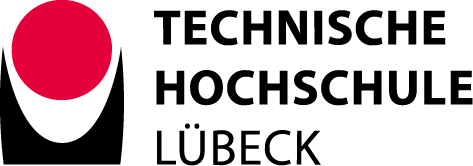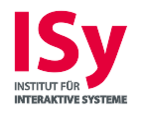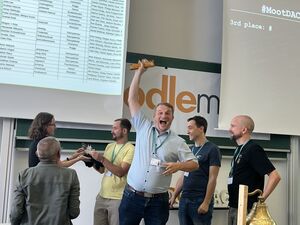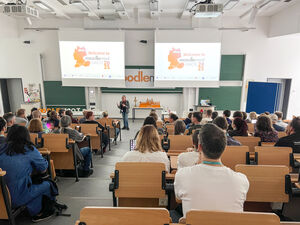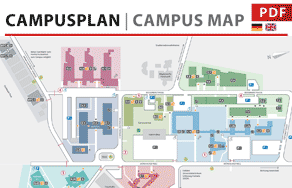Coding, exchange, and community spirit
What makes MoodleMootDACH special is that it's not just a place for lectures, but also for actively developing solutions. In the Developer Camp (DevCamp), over 160 developers from around the world worked on more than 20 projects, which were ultimately presented as working prototypes. The topics ranged from the integration of AI agents to support teachers and the improvement of the Moodle calendar to playful features such as virtual confetti when passing tests.
First place went to an international team that developed a monitoring plugin for Moodle. This allows systems to be monitored in real time, problems to be identified early on, and usage trends to be analyzed. The idea was discussed directly with Moodle headquarters, where it met with great interest—many participants have already announced their intention to continue using the plugin and help develop it further.
Barcamp with a new pitching tradition
The Barcamp took place after the DevCamp, 2 days with 80 sessions spread across up to 11 parallel tracks. The topics covered a wide range, from didactics and design to development and quizzes to AI and open source. Sessions took the form of lectures, discussions, Q&A rounds, or interactive formats, in German or English.
A new feature of the Lübeck Moot was that pitching took place on both days. This allowed sessions to be repeated, continued, or discussed further on the following day. Despite logistical challenges with almost 300 participants, the pitching went smoothly thanks to well-coordinated organization and was very well received by the guests.
Contributions from the Institute for Interactive Systems
The Institute for Interactive Systems (ISy) was not only a co-organizer, but also represented with content contributions. Among other things,
- Andreas Wittke presented the AI-based SummarAIzer,
- Anja Lorenz and Tina John spoke about course sharing via LTI Advantage, and
- Thomas Muschal presented new course formats from ISy projects.
In addition, Anja Lorenz, Andreas Wittke, and Jessica Brandenburger, as experienced Barcamp organizers, moderated the session planning. Digital tools and analog methods were used to create a varied and professionally executed event.
Atmosphere and outlook
In addition to the intensive work, there was also time for exchange and community building. Whether during the pitch session, the joint “Moin” in the lecture hall, or over coffee in between – the feedback from the participants was overwhelmingly positive.
“What's particularly enjoyable is that people are really coding and discussing here. All participants take concrete solutions and new ideas home with them,” emphasized Andreas Wittke, Chief AI Officer at ISy and co-organizer of the conference.
After Lübeck, the community is now looking ahead: MoodleMoot DACH 2026 will be hosted by ETH Zurich. For the team at TH Lübeck and oncampus GmbH, the experience remains: Lübeck has captured the spirit of the international Moodle community and impressively demonstrated how universities and the community can work together.
